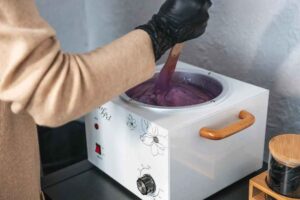Gastro Specialist Singapore: How do they check you?

Gastroenterology is the branch of medicine that focuses on the digestive system. The specialists in this area take care of and treat the esophagus, stomach, intestines, liver, gallbladder, and pancreas.
Just so you know, gastro specialists are also known as gastroenterologists. We will be using those names interchangeably throughout this article.
Whether we say “gastroenterologist” or “gastro specialist in Singapore,” they both refer to the same type of medical professional who specializes in diagnosing and treating conditions of the digestive system.
They are highly trained in diagnosing and treating disorders affecting the organs in these areas. From persistent abdominal pain to unexplained weight loss or chronic digestive issues, seeing a gastro specialist is vital for identifying and addressing underlying problems.
This guide explores how gastro specialists evaluate patients. Also, it explains what tests they perform, and how to prepare for your appointment. Let’s begin!
How Do You Know if You Have a Gastro Problem?
Recognizing symptoms of a gastrointestinal (GI) problem is the first step in seeking care. The digestive system is complex, and issues often present through various signs that may seem unrelated. Here are some key symptoms that may indicate that you have a gastro problem:
- Abdominal Pain: Persistent or recurring pain in the upper or lower abdomen can signal underlying digestive issues. While mild pain might be caused by overeating or gas, chronic or severe discomfort could point to conditions like gastritis, ulcers, or inflammatory bowel disease (IBD).
- Changes in Bowel Habits: Diarrhea, constipation, or alternating patterns may indicate problems like irritable bowel syndrome (IBS) or colorectal disorders. If bowel changes persist for more than a few days, consult your gastro specialist in Singapore for further assessment.
- Heartburn or Acid Reflux: Frequent burning sensations in the chest or a sour taste in the mouth could be signs of gastroesophageal reflux disease (GERD). Left untreated, GERD can lead to complications like esophageal damage.
- Unexplained Weight Loss: Sudden weight loss without changes to diet or activity levels may be a red flag. This could indicate malabsorption, chronic inflammation, or even tumors in the digestive tract.
What Happens When You First See a Gastroenterologist?
The initial consultation with a gastro specialist is designed to assess your symptoms and medical history comprehensively. Here’s a summary of what you can expect when you visit a gastro specialist in Singapore for the first time;
- Medical History and Symptoms Review: Your gastroenterologist will start by asking detailed questions about your symptoms. Expect questions about their onset, frequency, and severity. They’ll also inquire about your medical history, including past surgeries, chronic illnesses, and family history of GI disorders. This helps them identify risk factors and narrow down potential diagnoses.
- Physical Examination: The doctor will then conduct a physical exam, focusing on your abdominal area. They may palpate (press on) different parts of your abdomen to check for tenderness, swelling, or lumps. Listening to bowel sounds using a stethoscope is another common part of the examination, as it provides clues about digestive activity.
- Preliminary Diagnosis and Discussion: Based on your symptoms and exam findings, your gastro specialist in Singapore will discuss potential causes and recommend further tests if necessary. They may also advise on initial lifestyle changes, such as dietary adjustments or stress management, to alleviate mild symptoms.
What Kind of Tests Do Gastroenterologists Do?
Gastroenterologists use a variety of tests to diagnose digestive conditions. The type of test depends on your symptoms and suspected condition. Here are some of the most common diagnostic procedures:
- Endoscopy: An endoscopy involves inserting a thin, flexible tube with a camera into your digestive tract to examine its lining. This procedure is used to detect ulcers, inflammation, tumors, or bleeding. For example, an upper endoscopy assesses the esophagus and stomach, while a colonoscopy examines the large intestine.
- Imaging Tests: Tests like abdominal ultrasound, CT scan, or MRI provide detailed images of the digestive organs. These tests help identify abnormalities like gallstones, liver diseases, or blockages in the intestines.
- Stool and Blood Tests: Stool tests can detect infections, inflammation, or bleeding in the digestive tract. Blood tests may be used to assess liver function, check for anemia, or measure inflammation markers like C-reactive protein (CRP).
- Biopsy: During some procedures, such as an endoscopy, the doctor may take a small tissue sample (biopsy) for further analysis. Biopsies are crucial for diagnosing conditions like celiac disease or cancer.
What to Do Before Seeing a Gastroenterologist?
To get the most out of your appointment with a gastro specialist in Singapore, you will want to ensure that you prepare adequately. It isn’t difficult.
One of the first things you will want to do before seeing a gastro specialist is to document your symptoms. Keep a detailed record of your symptoms, including their frequency, duration, and any triggers.
Note whether they worsen after eating specific foods or during certain times of the day. This information provides valuable context for the doctor.
Other than the symptoms, you will also want to document your medications and the supplements you’re on. In fact, write and bring the list of all medications, supplements, and over-the-counter remedies you’re currently taking.
This is important because certain drugs can affect your digestive system or interact with prescribed treatments. Speaking of affecting your digestive system, if your appointment involves tests like an endoscopy, follow any preparation instructions provided by the clinic.
This may include fasting or avoiding certain foods and beverages. Proper preparation ensures accurate test results.
It may also help to write down any questions you have about your symptoms, tests, or treatment options. This ensures you don’t forget important concerns during your consultation.
Wrapping Up
Whether you’re dealing with abdominal pain, bowel changes, or unexplained weight loss, consulting a gastro specialist can help you uncover the root cause of your struggles. From symptom assessment and physical exams to advanced diagnostic tests, these specialists use a variety of tools to evaluate your condition.
Don’t ignore persistent digestive symptoms. Schedule an appointment with a trusted gastro specialist in Singapore today for expert care. Easily book an appointment with a specialist below;
Andrea’s Digestive Clinic: Colon | Liver | Gallbladder | GERD | Acid Reflux Specialist
101 Irrawaddy Rd, #21-11/12 Royal Square Medical Centre,
Singapore 329565
+65 6264 2836






